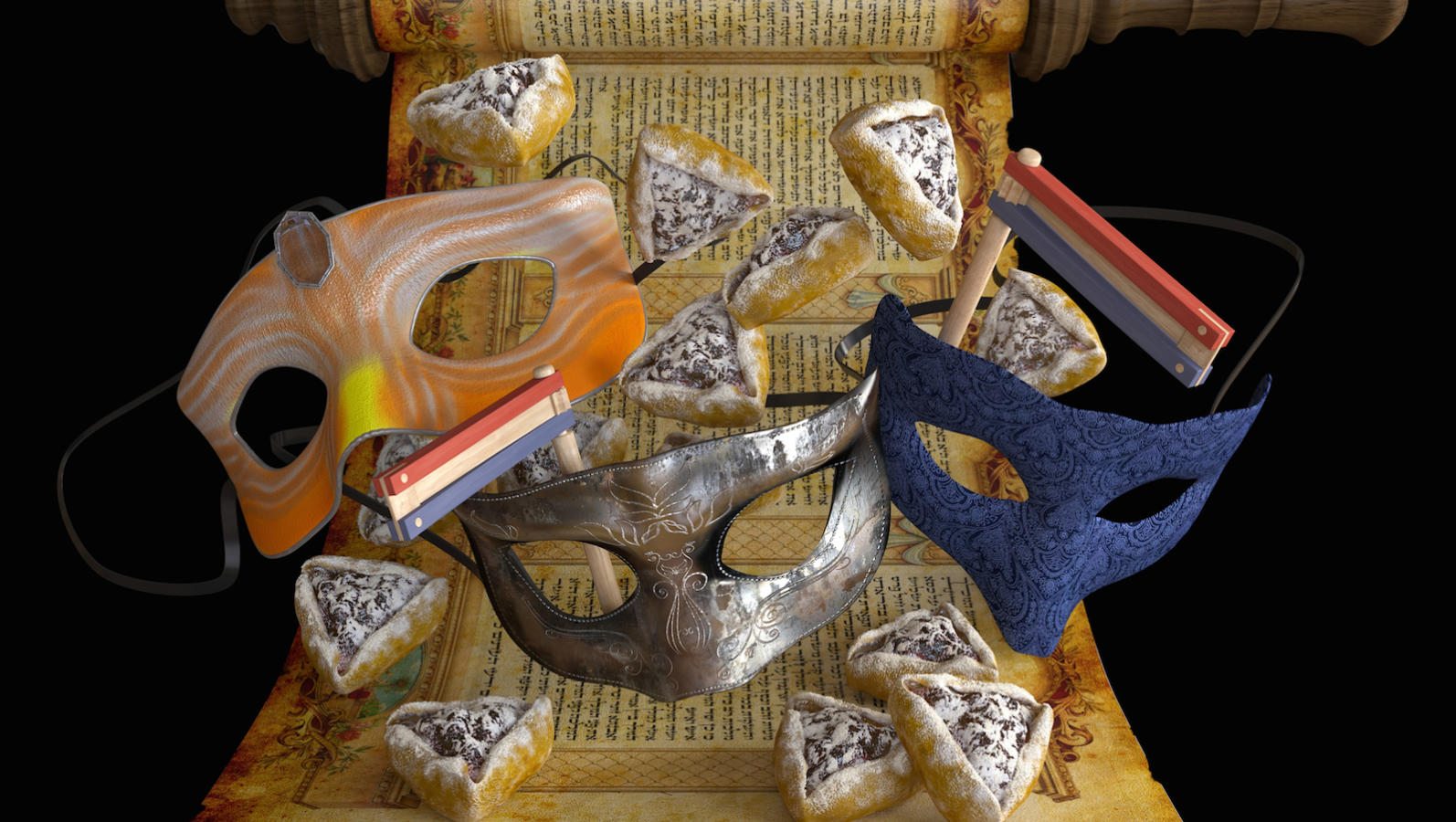In 2026, Purim begins at sundown on Monday, March 2 and ends at sundown on Tuesday, March 3.
What is Purim?
Purim is a joyous holiday that celebrates the deliverance of the Jews of ancient Persia from near-destruction at the hands of Haman, an adviser to King Ahasuerus. The story behind the holiday, told in the Scroll of Esther, recounts how the Jews were saved thanks to Esther, a Jewish woman chosen to be queen. Due to her courage and her role in saving the Jews, the story of Purim is named in her honor.
How Do You Celebrate Purim?
Purim is a raucous and joyful holiday with many traditions aimed at creating a mood of celebration. Traditionally, there are four mitzvot associated with the holiday:
- Reading the Scroll of Esther, which retells the holiday story. The scroll is often read twice in synagogues — once at night when the holiday begins, and again the following morning.
- Giving food gifts known as mishloah manot to friends.
- Giving gifts to the poor
- Eating a festive meal, or seudah.
In addition to these formal religious requirements, there are a number of other traditions on the holiday. One is to use noisemakers known as graggers to drown out the name of Haman each time it is chanted from the text of the Scroll of Esther. Many people dress up in costumes on Purim, a practice that likely goes back to medieval Italy. Many synagogues will also put on a Purim spiel, or comical skit, and host carnivals for children. And in a controversial practice, some adults will get drunk in fulfillment of a talmudic teaching that one ought to become so “fragrant” they cannot tell the difference between the evil Haman and the righteous Mordechai. (Most religious authorities say actually getting drunk is not a requirement on the holiday.)
With your help, My Jewish Learning can provide endless opportunities for learning, connection and discovery.
What Are Purim Foods?
The classic Purim food is hamantaschen, a triangular stuffed pastry that alludes to Haman, the villain of the Purim story. These are typically stuffed with various fillings and sent as part of mishloah manot packages or served at Purim festivities. Though they are the best-known Purim treats, they are not the only ones. Iraqi Jews eat an almond/cardamom cookie called hagdi badah. North African Jews celebrate Purim with debla: strips of thin dough wrapped into the shape of a rose and fried, then soaked in a sugar syrup and covered in crushed nuts. Many Ashkenazi Jews eat stuff tringular dumplings known as kreplach, while Russian Jews enjoy a sweet challah on Purim known as kulich or keylitsch.
Click here to learn more about Purim foods from around the world.
Your Purim Questions, Answered
How do you greet someone on Purim?
Why do Jews wear costumes on Purim?
Why do Jews eat hamantaschen on Purim?
What happens in synagogue on Purim?
Why do Jews send mishloach manot on Purim?
More Purim Resources
The Four Mitzvot of Purim
9 Things You Didn’t Know About Purim
Must-Know Purim Words and Phrases
How to Make Your Own Gragger
The Surprising Connection Between Purim and Yom Kippur
Mishloach Manot Do’s and Dont’s
The Truth About Drinking On Purim
Where to Stream Megillah Reading On Purim
How to Fold Hamantaschen
Why Some Jews Celebrate Purim a Day Later
Why Purim Is the Holiday of Prayer
How Purim Is Celebrated in Israel
Future Purim Dates
In 2027, Purim will begin on Monday March 22 and conclude on Tuesday March 23.
In 2028, Purim will begin on Saturday March 11 and conclude on Sunday March 12.
Last year, Purim was celebrated from March13-14.



